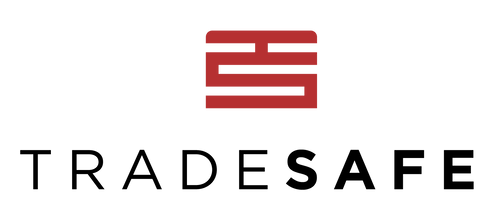
Personal Protective Equipment (PPE) is essential in many industries to shield employees from potential harm or illness. To secure workers' safety, the Occupational Safety and Health Administration (OSHA) obliges employers to supply PPE and oversee its proper usage. Read on to discover why OSHA mandates that employers cover the cost of PPE and how this measure guarantees worker safety.
Why Employers Must Pay for Workers’ PPE
Ensuring the safety and well-being of employees is a key responsibility of employers, and this includes providing adequate protective gear to prevent hazards. To hold employers accountable for their workers' safety, OSHA mandates that they bear the cost of providing PPE. This requirement serves as an incentive for employers to take measures to protect workers from potential dangers, promoting a safer and healthier work environment.
Financial Burden on Workers
For low-wage workers, keeping up with financial burdens can already be a struggle. That's why it's important for employers to cover the cost of PPE for their employees. Not only is this required by OSHA regulations, but it also ensures that workers aren't unfairly burdened for their own safety. At the end of the day, employees shouldn’t be subjected to financial hardship.
Promotes Safe and Effective Use of PPE
To promote safety, proper usage and timely replacement of Personal Protective Equipment is crucial. When workers are required to buy their own PPE, they tend to use it less often and may not replace it when necessary, jeopardizing their safety and health. When management is responsible for providing the gear, thus encourages workers to use it effectively and replace it as needed, ultimately ensuring sufficient protection at the workplace.
Prevents Cutting Corners
When it comes to protective gear for your employees, cutting corners is not an option. OSHA regulations require that employers pay for adequate and high-quality PPE. Scrimping on this essential equipment could lead to serious injuries or illnesses for workers, as well as putting the employers at risk of OSHA sanctions and penalties.
Encourages Worker Compliance
When employees purchase their own personal protective equipment (PPE), there's a chance that they might use it less frequently when it's needed or may extend its use beyond the recommended duration to save money. Such actions can increase the risk of accidents and illnesses in the workplace, as well as increase the chances of violating OSHA regulations. By enforcing the use of company-provided equipment, you promote worker safety while reducing the risk of regulatory violations.
What PPE Employers Must Provide and Cover
Although there are a few exceptions, OSHA mandates that employers shoulder the cost of specific PPE. OSHA requires that employers pay for most PPE including:
- Hard hats
- Safety glasses and goggles
- Respirators
- Gloves (e.g. chemical-resistant, cut-resistant, or electrical-insulating gloves)
- Face shields
- Safety shoes or boots with impact-resistant toes
- Hearing protection (e.g. earplugs or earmuffs)
- Fall protection equipment (e.g. safety harnesses or lanyards)
- Protective clothing (e.g. flame-resistant clothing or high-visibility vests)
Employers do not have to pay for:
- Everyday clothing (e.g. a regular shirt and pants)
- Steel-toed shoes or boots (unless they are required by OSHA for a specific hazard)
- Prescription safety glasses or contact lenses
- Sunscreen or insect repellent
- Ordinary cold weather gear (e.g. a winter coat, hat, and gloves)
- Ordinary rain gear (e.g. a raincoat and boots)
FAQs
1. What is PPE?
In order to stay safe in hazardous environments, it's essential to take precautions by donning Personal Protective Equipment (PPE), such as gloves, safety glasses, respirators, and hard hats. Keep your body safe and secure with the right gear - always be prepared.
2. Can workers be required to pay for their PPE?
Ensuring employee safety is a top priority, and OSHA regulations dictate that it is the employer's responsibility to provide Personal Protective Equipment (PPE). It is essential to note that asking workers to pay for their own PPE or deducting expenses from their paychecks is prohibited by law. Employers must take proactive measures to provide the necessary equipment and maintain a safe working environment.
3. What happens if an employer does not provide appropriate PPE?
Employers face penalties and fines for failing to provide proper Personal Protective Equipment (PPE) stipulated by the Occupational Safety and Health Administration (OSHA). Meanwhile, employees are exposed to severe health risks that may lead to injuries or illnesses.
4. Can workers refuse to use inadequate or substandard PPE?
Workers have the right to say "no" to insufficient Personal Protective Equipment (PPE) that could leave them at risk for injury or illness. Supervisors must be informed or the issue must be reported to OSHA if the PPE is substandard.
It is vital that employers shoulder the expenses of Personal Protective Equipment (PPE) to ensure their workers' utmost protection. This guarantees their accountability for their employees' welfare and saves workers from shouldering the financial burden of their own protection.
